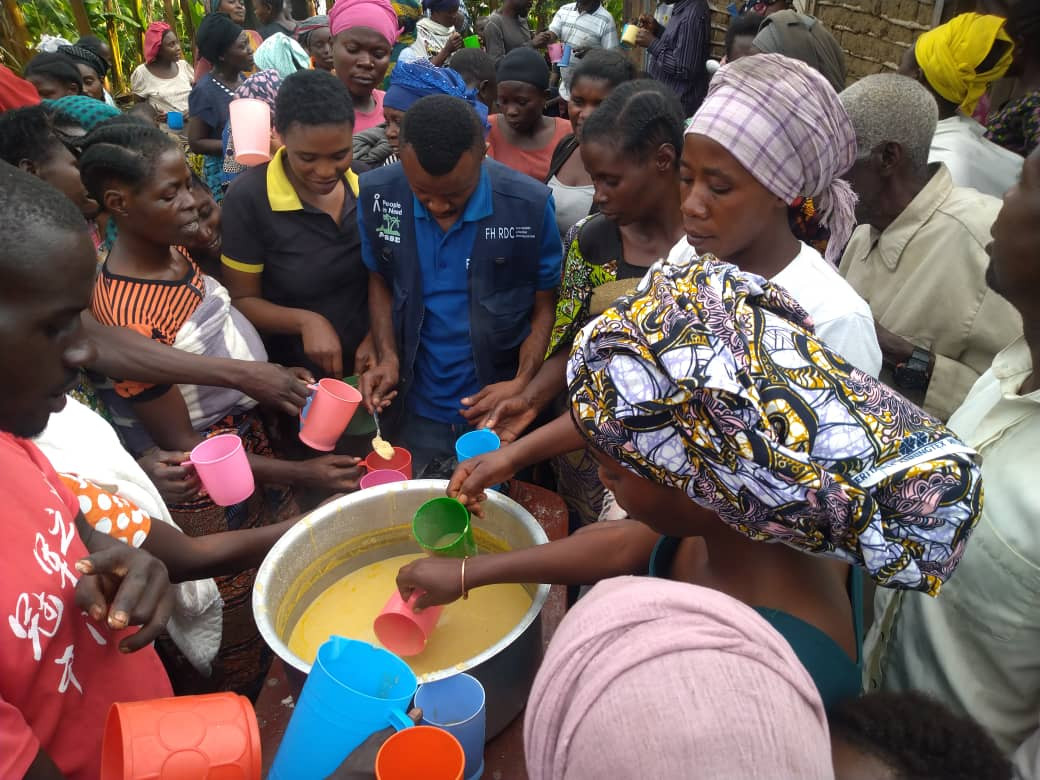Amid Ongoing Crises, Emergency Support Reaches Displaced People in DR Congo
Published: Apr 30, 2025 Reading time: 3 minutes Share: Share an articleMultidimensional crises, aggravated by population movements following the armed conflict in eastern Democratic Republic of Congo, have put displaced people and host households at extreme risk, making it nearly impossible for people to meet their needs.

For almost 3 decades, the Democratic Republic of Congo (DRC) has been plunged into chaos. The eastern part of the country has been plagued by internal and external conflicts, resulting in deaths, rape of women and children, and mass displacement. This situation exposes segments of the population, notably pregnant and breastfeeding women and children under five, to extreme food insecurity. Much of the population remains at risk of several health and nutritional diseases, including malnutrition, anaemia, and other pathologies.
We joined forces with a local partner organisation, ADESSE, in the Minova health zone to help people affected by the armed conflict.
Since August 2024, the DRC Humanitarian Funds OCHA DR Congo project has been supporting four health facilities, including the Bwisha, Buhumba, Chebumba and Kasunyu health centres. We regularly supply health centres with nutritional supplements and other essential medicines to treat moderate and severe acute malnutrition cases. Project staff also provides weekly technical support training as part of the skills enhancement programme for health workers.
Zawadi fled the clashes in the village of Masisi with her children.
Over 500 children between 0 and 59 months and pregnant and breastfeeding women have been selected for our malnutrition management programme.
In addition to nutritional services and ADSSE, we are raising community awareness through community meetings and home visits by humanitarian workers. These sessions provide advice and guidance on day-to-day nutrition and healthcare issues.
We equipped health workers with medical tools to diagnose and treat illnesses such as malnutrition. We also distributed hygienic items to selected households, such as soaps and water purifying tablets, enabling them to drink water and avoid waterborne diseases.
Malnutrition is one of the diseases that children often contract when there is a dietary imbalance within the family, frequently due to undernourishment linked to vitamin and mineral deficiencies. Frequent population displacement due to repeated clashes between armed groups, resulting in the abandonment of fields, livestock, and other sources of income, is the primary cause of malnutrition. As the needs are significant, humanitarian aid in Minova is needed more than ever.



